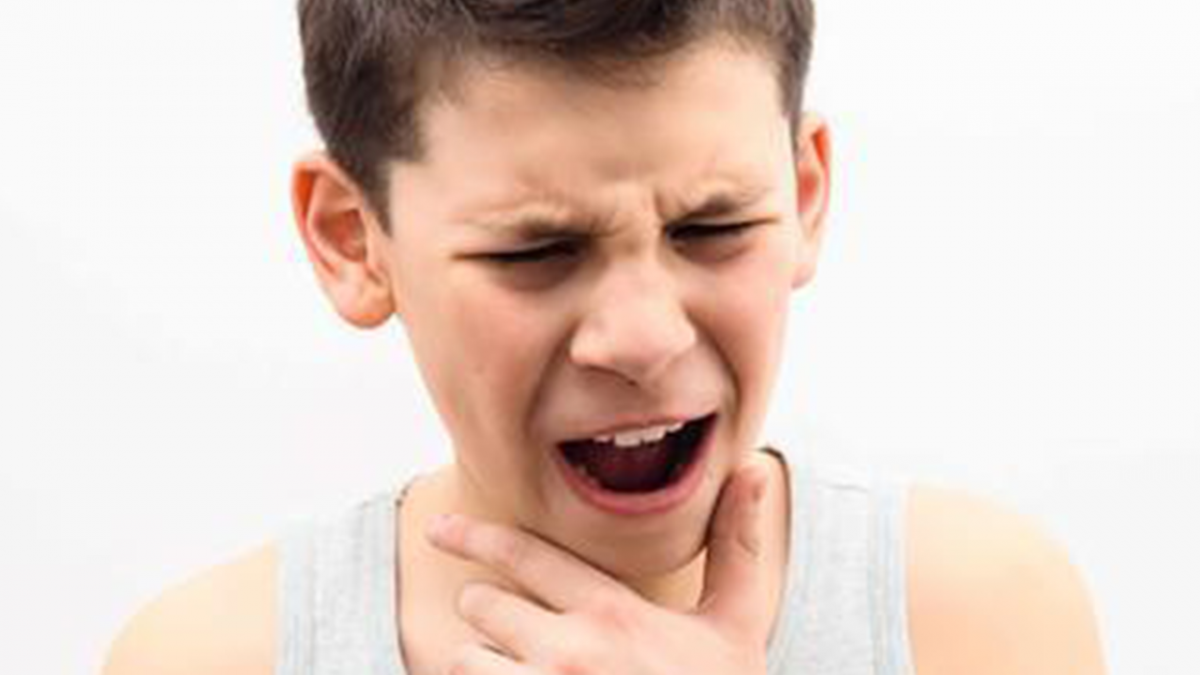Advertisement
A sore throat, medically known as pharyngitis, is a common condition that most people experience at some point in their lives. It is characterized by pain, scratchiness, or irritation in the throat, which can range from mild discomfort to severe pain that significantly impacts daily activities.

There are numerous factors that can lead to a sore throat. One of the most prevalent causes is viral infections. The common cold, flu, and mononucleosis are often accompanied by a sore throat. Viruses such as the rhinovirus, which causes the common cold, infect the cells in the throat, triggering an immune response. This immune response leads to inflammation of the throat tissues, resulting in pain and discomfort. Influenza viruses can also cause a sore throat, along with other symptoms like fever, body aches, and fatigue. Mononucleosis, caused by the Epstein - Barr virus, typically presents with a severe sore throat, swollen tonsils, and enlarged lymph nodes.
Bacterial infections are another significant cause. Streptococcus pyogenes, commonly known as group A strep, is responsible for strep throat. This type of infection can cause a sudden and severe sore throat, often accompanied by a high fever, white patches on the tonsils, and swollen lymph nodes in the neck. If left untreated, strep throat can lead to serious complications such as rheumatic fever and kidney inflammation. Other bacteria like Corynebacterium diphtheriae, although rare in developed countries due to vaccination, can cause diphtheria, which presents with a thick, grayish - white membrane covering the throat and tonsils, along with a severe sore throat.
Environmental factors also play a role in causing a sore throat. Dry air, especially in indoor environments during the winter months when heating systems are running, can dry out the throat mucosa. This dryness makes the throat more vulnerable to irritation and infection. Allergies can also trigger a sore throat. When the body is exposed to allergens such as pollen, dust mites, or pet dander, it releases histamines, which can cause the throat to become inflamed and itchy. In addition, exposure to irritants like cigarette smoke, pollution, and chemical fumes can irritate the throat, leading to a sore throat.
Certain lifestyle habits can contribute to a sore throat as well. Excessive use of the voice, such as in singers, teachers, or public speakers who overuse their vocal cords, can cause strain and inflammation in the throat. Smoking and excessive alcohol consumption can irritate the throat mucosa, making it more prone to infections and inflammation.
The symptoms of a sore throat can vary depending on the underlying cause. The most obvious symptom is pain in the throat, which can be a sharp, stabbing pain or a dull ache. The pain may be worse when swallowing, speaking, or coughing. Some people may experience a scratchy or itchy sensation in the throat, which can be quite bothersome. A sore throat may also be accompanied by a cough, which can be dry or productive, depending on the cause. In cases of bacterial infections, there may be visible white or yellow patches on the tonsils, and the lymph nodes in the neck may be swollen and tender. Fever is another common symptom, especially in cases of viral or bacterial infections. In more severe cases, difficulty breathing or swallowing may occur, which is a sign of a more serious condition and requires immediate medical attention.
Diagnosing the cause of a sore throat typically begins with a physical examination by a healthcare provider. The doctor will visually inspect the throat using a tongue depressor and a light to look for signs of inflammation, such as redness, swelling, or the presence of white patches. The doctor will also check the lymph nodes in the neck for swelling and tenderness. In cases where a bacterial infection is suspected, a throat swab may be taken to perform a rapid strep test or a culture. This test can determine if group A strep bacteria are present in the throat. If the cause is thought to be an allergic reaction, the doctor may ask about the patient's exposure to potential allergens and may perform allergy testing. In some cases, blood tests may be ordered to check for signs of infection or to rule out other medical conditions.

Treatment for a sore throat depends on the underlying cause. For viral infections, which are the most common cause, treatment is mainly focused on relieving symptoms. Over - the - counter pain relievers such as acetaminophen or ibuprofen can help reduce pain and fever. Gargling with warm salt water several times a day can also provide relief by reducing inflammation and soothing the throat. Drinking plenty of fluids, such as water, tea, or warm broth, can help keep the throat moist and ease the pain. Using a humidifier in the bedroom can also help add moisture to the air and relieve dryness in the throat.
In cases of bacterial infections, such as strep throat, antibiotics are usually prescribed. Penicillin is the first - line treatment for strep throat, and it is important to complete the full course of antibiotics to ensure that the infection is completely eradicated and to prevent complications. For allergic - related sore throats, avoiding the allergen is the first step. Antihistamines can be used to reduce the allergic response, and in some cases, corticosteroid nasal sprays or inhalers may be prescribed to reduce inflammation.
In conclusion, a sore throat is a common condition with a wide range of causes. Understanding the underlying cause, recognizing the symptoms, and seeking appropriate treatment can help individuals manage this condition effectively and recover quickly. If the symptoms of a sore throat are severe, persistent, or accompanied by other concerning symptoms such as difficulty breathing or swallowing, it is important to seek medical attention promptly.
Advertisement




